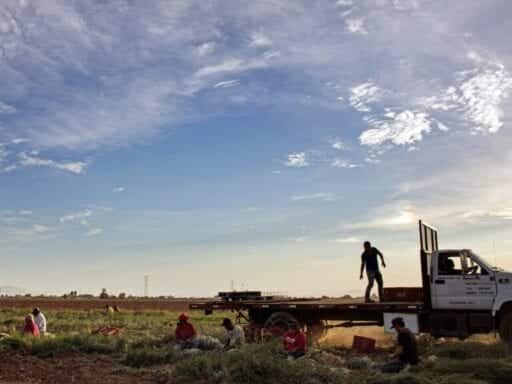Trump said Mexico will soon increase its spending on US agricultural products. The ambassador said that isn’t exactly the case.
Mexico’s ambassador to the United States, Martha Bárcena Coqui, worked to clarify elements of the recent US-Mexico immigration agreement that staved off tariffs on Mexican goods Sunday.
As part to the deal, Mexico has agreed to station 6,000 members of the National Guard around the country, most at the Mexico-Guatemala border. The tariffs would have placed a 5 percent tax on all Mexican goods starting Monday; that tax would have risen at regular intervals to 25 percent.
Trump said the threat of tariffs was necessary to push Mexico to increase its efforts to reduce the flow of South American immigrants and asylum seekers traveling to the US-Mexico border.
The deal was announced by President Donald Trump on Friday, but tweets he sent, as well as reporting that showed the National Guard agreement had actually first been made in March, led to some confusion about the compact.
Coqui was asked to explain details of the agreement Sunday on CBS’s Face the Nation, and clarified statements Trump made on agricultural trade while elaborating on the role the National Guard will play in Mexican immigration enforcement.
Saturday, Trump tweeted that following the immigration agreement, Mexico planned to increase the amount of US agricultural product it buys.
MEXICO HAS AGREED TO IMMEDIATELY BEGIN BUYING LARGE QUANTITIES OF AGRICULTURAL PRODUCT FROM OUR GREAT PATRIOT FARMERS!
— Donald J. Trump (@realDonaldTrump) June 8, 2019
The joint statement released by the US and Mexico did not mention any increase in agricultural orders, and as Bloomberg pointed out, Mexico does not have an official government body that would buy and distribute food products or farm equipment. The president later tweeted that “some things not mentioned in yesterday press release, one in particular, were agreed upon,” but did not clarify whether agricultural trade was one of those things.
When asked if the president was correct, the diplomat did not answer directly, explaining that US farmers can expect trade growth once the pending US-Mexico-Canada (USMCA) Agreement, the successor to NAFTA, is ratified.
“It is our understanding that without tariffs and with USMCA ratification, there will be an increased rates, both in agricultural products and manufactured products. Even now — ”
“But nothing that was actually agreed to as part of this negotiation,” host Margaret Brennan interrupted, “Because the president’s been tweeting, saying that Mexico agreed to buy all sorts of agricultural products.”
“What I would say, is that even now, we are the second buyer of the US grains and meat and we have an integrated economy in the agricultural sector.”
Mexican ambassador tells @FaceTheNation that her earlier comments neither confirmed nor denied transaction. Here’s the clip, you decide. pic.twitter.com/W2hqK2eOnD
— Face The Nation (@FaceTheNation) June 9, 2019
When asked specifically if any new transaction was agreed to as part of the immigration deal, the ambassador did not respond, before finally saying, “I am talking about trade, and I am absolutely certain that the trade in agricultural goods could increase dramatically in the next few months.”
It is not yet clear whether this projected increase in agricultural commerce is what Trump meant with his proclamation on Twitter.
One thing Bárcena Coqui did make clear is a distinction between Mexico’s new National Guard — which will deploy to its southern border — and the US’ force of the same name.
“It is not like the National Guard of the US,” the ambassador said. “It is a police force based on the models of the European military police like the [Italian] Carabinieri, like the [French] Gendarmerie, like the [Spanish] Guardia Civil Española. So we have to understand that when people talk about deployment of troops, they are wrong. What we are deploying is a police force, and we are deploying it to put order in the borders.”
Mexico’s National Guard, similar to a “police force” will send members to the Guatemalan border Monday, Mexican Amb. @Martha_Barcena says and hopes to see results in a relatively short time, “like a month or a month and half.” pic.twitter.com/ur6PoNDDuc
— Face The Nation (@FaceTheNation) June 9, 2019
Trump has said that tariffs remain on the table, and that if Mexico does not make progress in stemming migration, he will enforce them. The ambassador said Mexico has a timeline for seeing the results of its National Guard deployment, and said both countries should see a difference in immigrant numbers soon.
“We would hope that these will bring results in a very relative short term,” she said, “Like in a month or a month-and-a-half.”
The two sides are set to meet again in 90 days to discuss progress in dealing with these issues. Trump has not said whether he will wait until that time before revising tariffs.
Author: Eric Kleefeld
Read More



